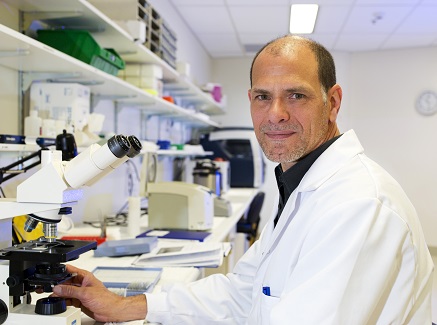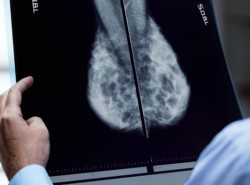
New Therapies to Outsmart Treatment Resistance in Aggressive Breast Cancer
Published: 10/7/19 11:23 PM

Normand Pouliot
- Project description: Dr Normand Pouliot and his team will test novel combination therapies for aggressive breast cancers using drugs that are already in the clinic or are currently undergoing clinical trials.
- Why this work is needed: Treatment resistance is a major factor as to why some therapies become ineffective in aggressive cancers. This project will test novel combination therapies for aggressive TNBC and HER2 breast cancers to determine if they can stop breast cancer progression and spread.
- Expected outcomes: The project findings will contribute to the development of new treatment options for patients with TNBC and HER2. The knowledge gained will also help to overcome treatment resistance for metastatic cancer.
Project details
Drug therapy is an important part of primary treatment for breast cancer and is the treatment of choice in the advanced stage of the disease. However, it is common for tumours to outsmart the drugs used and develop resistance. This drug resistance, especially in aggressive and metastatic cancers, is one of the biggest challenges in successful treatment.
Dr Normand Pouliot, a 2019 NBCF grant recipient, is developing a new technique to prevent drug resistance in commonly used breast cancer treatments. His novel technique targets a protein on the surface of cancer cells called integrin αvβ3 protein, leading to improved treatment efficacy.
Dr Pouliot’s team have also developed experimental models that replicate breast cancer metastasis in the presence of an intact immune system. These models are representative of two aggressive subtypes of breast cancer; Triple Negative (TBNC) and HER2 cancers. In this new NBCF-funded project, they will test if drugs that target the integrin αvβ3 protein can stop the progression of tumours in these models. The drugs are a combination of new experimental formulas and inhibitor drugs that are already in use in the clinic.
If successful, the approach will reduce the development of drug resistance in patients undergoing breast cancer treatment. In addition, the knowledge gained could be important in the development of new immunotherapy treatment modalities.
